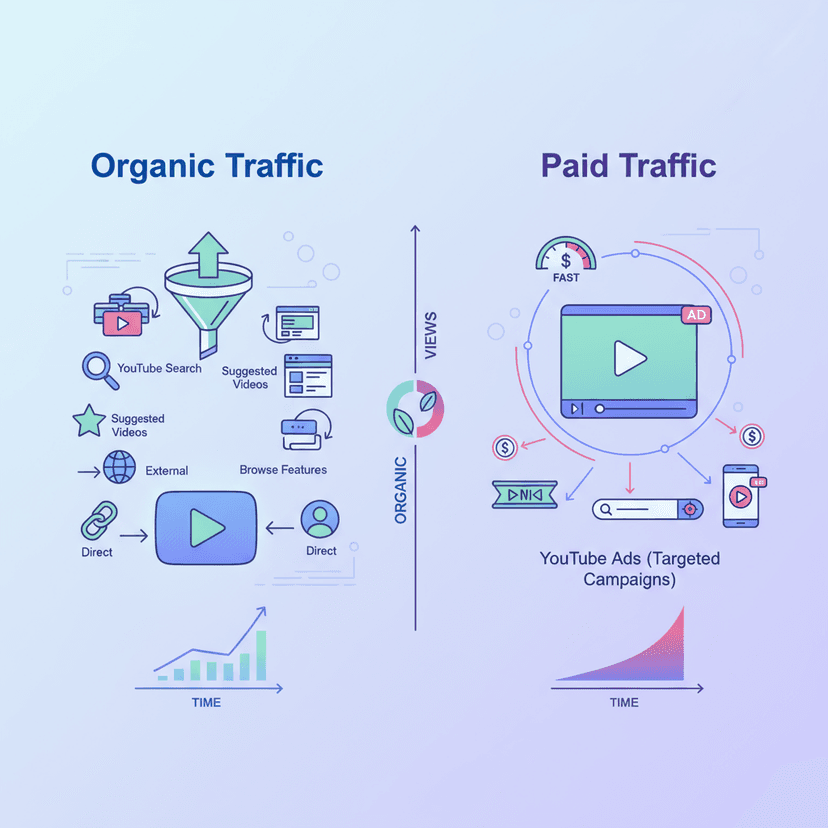Introduction
The digital content landscape is undergoing a significant transformation as major platforms take decisive action against what they consider “unoriginal” content. Meta, the parent company of Facebook, has recently announced a major policy update aimed at accounts that share recycled or repurposed content without adding substantial value. This move represents a fundamental shift in how social media platforms approach content moderation and creator monetization.
As we navigate this changing environment, understanding Meta’s new policies is crucial for content creators, marketers, and businesses that rely on Facebook for audience engagement and revenue. These changes will affect how content is distributed, who gets monetized, and ultimately reshape what kind of content thrives on the platform.
Meta’s Recent Policy Changes
Meta’s announcement comes as part of a broader effort to improve the quality of content on its platforms. The company revealed it has removed approximately 10 million profiles impersonating large content creators and taken action against 500,000 accounts involved in what Meta describes as “spammy behavior or fake engagement.”
According to Meta’s official blog post: “We believe that creators should be celebrated for their unique voices and perspectives, not drowned out by copycats and impersonators.” This statement clearly indicates Meta’s intention to prioritize original content creators over those who simply recycle existing material.
Under the new policy, accounts that repeatedly reuse someone else’s videos, photos, or text posts without permission or meaningful additions will face two significant consequences:
- Loss of access to Facebook’s monetization programs
- Reduced visibility across all content
Additionally, Meta is testing a system that adds attribution links on duplicate videos to direct viewers to the original creator. This feature aims to ensure proper credit is given to the source of the content while also helping users discover authentic creators.
Understanding “Unoriginal” Content
But what exactly does Meta consider “unoriginal” content? Understanding this definition is essential for creators concerned about their content strategy.
Meta defines unoriginal content as material that is reposted from other creators without permission or meaningful enhancements. Simply taking someone else’s video, image, or text and reposting it verbatim would clearly fall into this category. However, the boundaries become less clear when we consider content that incorporates elements from multiple sources or makes minor modifications.
It’s important to note that Meta does distinguish between unoriginal content and transformative content. Content that takes existing material but adds substantial value through commentary, criticism, or educational context may still be considered original enough to avoid penalties. For example, reaction videos, analysis pieces, or educational compilations that add meaningful perspective can still be compliant with Meta’s policies.
Meta seems particularly concerned with content that offers no added value to viewers—posts that simply aggregate or recycle trending material without any original input or perspective. This approach targets content farms and accounts that flood feeds with low-effort, recycled material.
Meta vs. YouTube: Comparing Approaches
Meta’s policy update closely follows YouTube’s similar announcement about its stance on “inauthentic” content. Both platforms appear to be addressing the same fundamental issue: the proliferation of accounts that profit from reposting others’ work without permission or meaningful additions.
YouTube creator liaison Renee Richie characterized YouTube’s update as “a minor update to YouTube’s long-standing YPP policies to help better identify when content is mass-produced or repetitive.” Like Meta, YouTube is focusing on distinguishing between transformative uses of existing content and simple reposting.
The timing of these policy updates from two major platforms suggests a coordinated industry-wide movement against content farms and low-quality, recycled material. Both platforms recognize that allowing such content to proliferate diminishes the user experience and undermines the ecosystem for original creators.
While the specific implementation details differ between platforms, the underlying philosophy is remarkably similar: reward originality, penalize copying, and improve the overall quality of content available to users.
The Role of AI in Content Creation
Neither Meta nor YouTube has outright banned AI-generated content in their recent updates. However, their policies appear designed, at least in part, to address the wave of low-quality, automated material that offers little value to viewers.
AI tools have made it increasingly easy to generate or repurpose content at scale. This technology enables content farms to produce massive quantities of derivative material with minimal human input. While AI itself isn’t the problem, the low-effort, low-value content it sometimes facilitates appears to be a target of these new policies.
YouTube’s guidelines affirm that creators may use AI tools as long as the final product includes original commentary or educational value, with proper disclosure for synthetic content. Similarly, Meta’s approach doesn’t prohibit AI assistance but emphasizes the importance of “authentic storytelling” over simply “stitching together clips” or relying on recycled content.
As AI continues to evolve in the content creation space, platforms are working to find the balance between allowing innovative uses of technology while preventing the flooding of feeds with AI-generated “content slop” that offers little original value.
Impact on Content Creators
For content creators, these policy updates from Meta and YouTube reinforce the importance of originality and creative input. The changes will likely affect different types of creators in different ways:
Original content creators who produce unique material from scratch will likely benefit from these changes. As platforms reduce the visibility of unoriginal content, truly original creators should experience less competition from copycats and potentially see improved reach and engagement.
Curators and commentators who add substantial value to existing content—through analysis, education, or entertainment—should remain largely unaffected as long as their additions are meaningful. These creators transform existing material rather than simply reposting it.
Content aggregators who primarily repost trending content with minimal editing or original input are most likely to be negatively impacted. These accounts may see reduced reach, engagement, and monetization opportunities under the new policies.
The distinction between these categories isn’t always clear-cut, and many creators operate somewhere in the middle of this spectrum. For those creators, the key will be ensuring that whatever existing material they incorporate is transformed through substantial original additions.
Best Practices to Stay Compliant
To maintain monetization eligibility and avoid distribution penalties under Meta’s new policies, creators should consider the following best practices:
-
Focus on creating primarily original content that you’ve filmed, written, or designed yourself.
-
When using third-party content, make meaningful enhancements such as substantive editing, narration, or commentary that adds value beyond the original material.
-
Prioritize storytelling and quality over quantity. Meta specifically mentions that they value “authentic storytelling” over short, low-effort posts.
-
Avoid posting recycled content with visible watermarks from other platforms or creators, as this is a clear indicator of unoriginal material.
-
Write high-quality, thoughtful captions when sharing content, and avoid excessive hashtags or unnecessary capitalization that might appear spammy.
-
Always obtain permission when using others’ content, and provide proper attribution even when your use is transformative.
-
Maintain consistency in your content style and topics to build an authentic brand rather than chasing trends with recycled material.
By following these guidelines, creators can navigate Meta’s new policies while continuing to engage their audiences and maintain access to monetization opportunities.
Meta’s New Tools for Creators
To support creators in adapting to these policy changes, Meta has introduced several new tools in its Professional Dashboard:
Post-level insights that provide more detailed performance metrics for individual pieces of content, helping creators understand what resonates with their audience.
A risk assessment tool that allows page owners to check if their content is at risk of distribution or monetization penalties due to policy violations.
These tools aim to provide transparency and help creators adjust their strategies proactively rather than reacting to penalties after they occur. Meta appears to be taking a guidance-oriented approach alongside its enforcement measures, helping creators understand and adapt to the new standards.
The Future of Content Creation
Meta and YouTube’s policy updates signal a broader industry shift toward prioritizing quality and originality in digital content. This trend is likely to continue across other platforms as they face similar challenges with content farms and low-quality material.
For the content creation ecosystem as a whole, these changes could lead to several positive developments:
-
A reduction in content clutter and noise as low-value, recycled material receives less distribution.
-
Increased incentives for creators to develop distinctive voices and original perspectives.
-
Potentially higher engagement rates for quality content as users encounter fewer repetitive posts.
-
More equitable monetization opportunities for creators who invest time and effort in original material.
However, these changes may also present challenges, particularly for smaller creators who use curation as a starting point or those in niches where certain formats are standard. The key for these creators will be finding ways to add unique value even when working within established content types.
Conclusion
Meta’s crackdown on unoriginal content represents a significant shift in how the platform approaches content moderation and creator incentives. By penalizing accounts that simply recycle existing material without adding value, Meta aims to create a healthier ecosystem that rewards creativity and authentic expression.
For content creators, these changes emphasize the importance of originality and meaningful contribution. While the specific implementation and enforcement of these policies will likely evolve over time, the direction is clear: platforms are moving toward prioritizing quality over quantity, and originality over imitation.
As we move forward, successful content strategies will increasingly need to focus on creating genuine value for audiences rather than simply maximizing output or capitalizing on trending topics with recycled material. The era of effortless monetization through reposting appears to be coming to an end, replaced by an emphasis on creative input, storytelling, and authentic expression.
By understanding these changes and adapting strategies accordingly, creators can position themselves for success in this evolving landscape where originality is once again becoming the most valuable currency. To stay ahead, leveraging Content Marketing and SEO Thailand strategies can help ensure your content stands out and reaches the right audience effectively.







